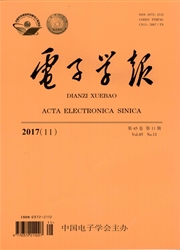

 中文摘要:
中文摘要:
It is illegal to spread and transmit pornographic images over internet,either in real or in artificial format.The traditional methods are designed to identify real pornographic images and they are less efficient in dealing with artificial images.Therefore,criminals turn to release artificial pornographic images in some specific scenes,e.g.,in social networks.To efficiently identify artificial pornographic images,a novel bag-of-visual-words based approach is proposed in the work.In the bag-of-words(Bo W)framework,speeded-up robust feature(SURF)is adopted for feature extraction at first,then a visual vocabulary is constructed through K-means clustering and images are represented by an improved Bo W encoding method,and finally the visual words are fed into a learning machine for training and classification.Different from the traditional BoW method,the proposed method sets a weight on each visual word according to the number of features that each cluster contains.Moreover,a non-binary encoding method and cross-matching strategy are utilized to improve the discriminative power of the visual words.Experimental results indicate that the proposed method outperforms the traditional method.
 英文摘要:
英文摘要:
It is illegal to spread and transmit pornographic images over internet, either in real or in artificial format. The traditional methods are designed to identify real pornographic images and they are less efficient in dealing with artificial images. Therefore, criminals turn to release artificial pornographic images in some specific scenes, e.g., in social networks. To efficiently identify artificial pornographic images, a novel bag-of-visual-words based approach is proposed in the work. In the bag-of-words (BoW) framework, speeded-up robust feature (SURF) is adopted for feature extraction at first, then a visual vocabulary is constructed through K-means clustering and images are represented by an improved BoW encoding method, and finally the visual words are fed into a learning machine for training and classification. Different from the traditional BoW method, the proposed method sets a weight on each visual word according to the number of features that each cluster contains. Moreover, a non-binary encoding method and cross-matching strategy are utilized to improve the discriminative power of the visual words. Experimental results indicate that the proposed method outperforms the traditional method.
 同期刊论文项目
同期刊论文项目
 同项目期刊论文
同项目期刊论文
 Motion recognition for 3D human motion capture data using support vector machines with rejection det
Motion recognition for 3D human motion capture data using support vector machines with rejection det 期刊信息
期刊信息
